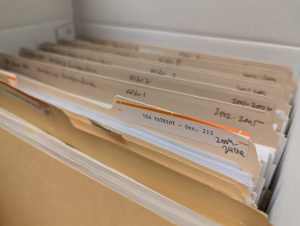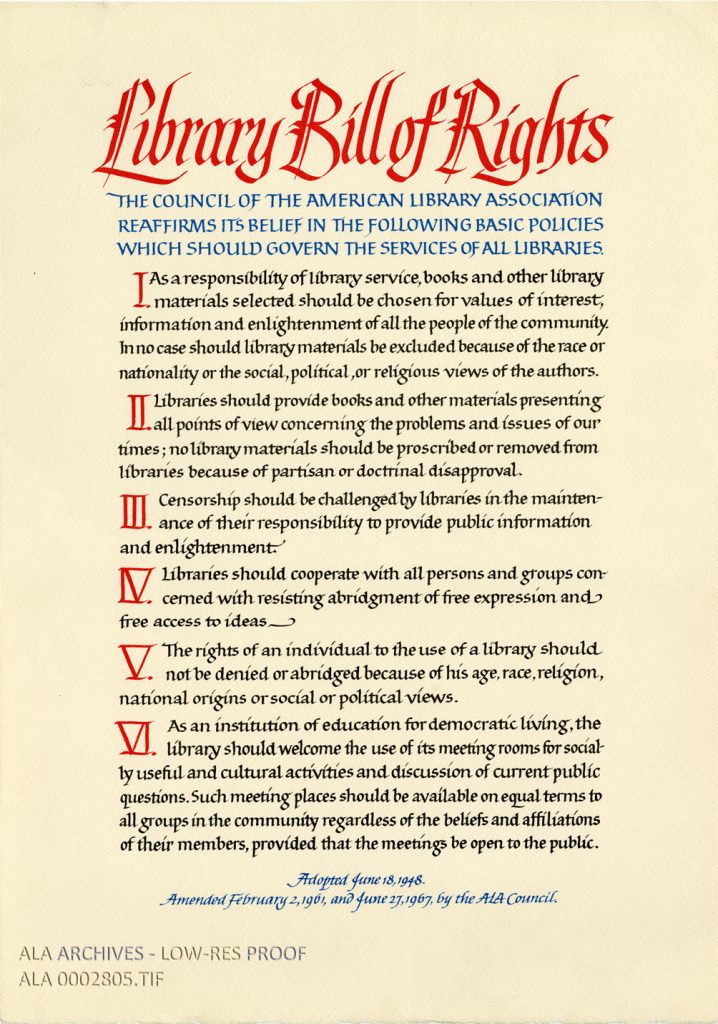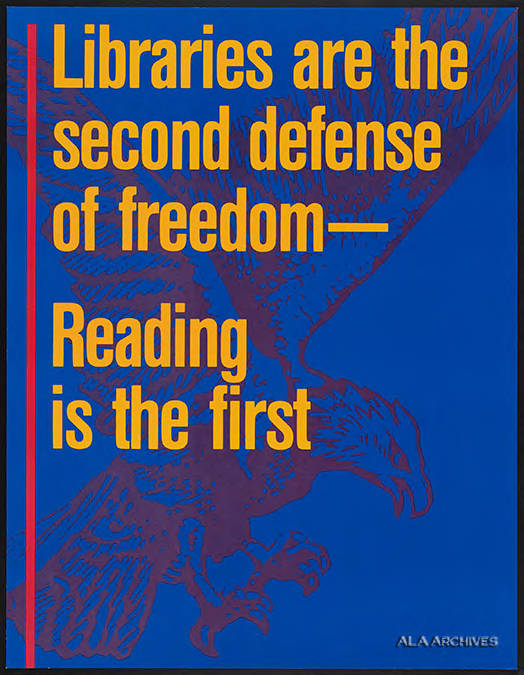This blog post is part of a series exploring the important events and people in ALA’s history for the celebration of the 150th anniversary of ALA in 2026.
Almost 60 years ago, the Intellectual Freedom Committee (IFC) of the American Library Association needed a partner in the fight for intellectual freedom. The 1960s brought concerns about censorship, freedom of the press, the freedom to read – and the impact on librarians who sought to uphold the values within the Library Bill of Rights and the Freedom to Read Statement. The ALA’s Office for Intellectual Freedom (OIF) was the solution, providing support and education on intellectual freedom to librarians and the public.[1] Little did they know how vital the OIF would become to the fight against book challenges and censorship and to the support of librarianship and the freedom to read everywhere. Continue reading “Fighting Censors and Book Bans: Establishing the ALA Office for Intellectual Freedom”



